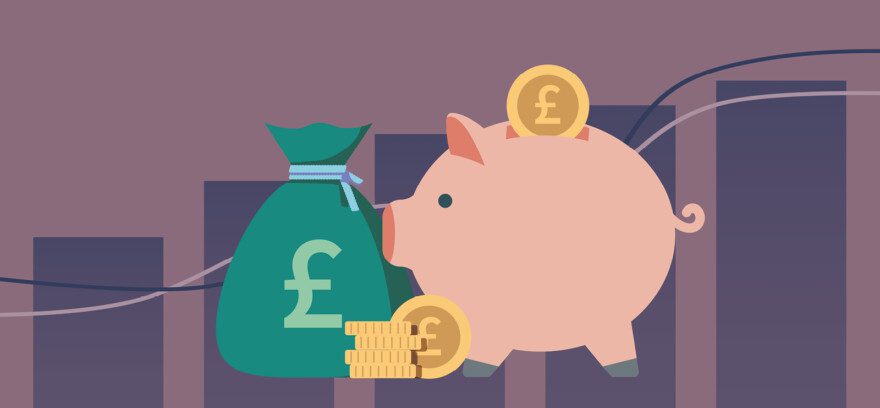UK markets broke record highs again this week, with the FTSE 100 Index rising by 1.34% to trade at 8,000 points.
UK wage growth accelerated by more than expected in the three months to December but remained below inflation, according to official data released on Tuesday by the Office for National Statistics. Growth in average regular pay, excluding bonuses, rose to an annual rate of 6.7% in the final three months of 2022, up from 6.4% in the three months to November.
This was higher than the 6.5% forecast by economists polled by Reuters and the strongest regular pay growth rate outside the coronavirus pandemic period. Markets are now pricing in a 0.25% increase in interest rates when the Monetary Policy Committee meets on March 23rd. UK inflation slowed by more than expected to a five-month low in January, adding to growing evidence that price pressures have peaked.
The Office for National Statistics announced on Wednesday that the annual rate of consumer price inflation declined to 10.1%, down from 10.5% in December after hitting a high of 11.1% in October.
Retail sales in the UK increased 0.5% month-on-month in January of 2023, rebounding from an upwardly revised 1.2% drop in December and beating market forecasts of a 0.3% decline. Despite this, sales remain 1.4% below their pre-covid February 2020 levels.
Commodity markets
In the commodity markets, Brent Crude futures traded around $83 per barrel on Friday and are on track to end the week lower, as recession fears returned after Federal Reserve officials hinted at another 0.5% interest rate hike to bring down inflation.
Oil prices came under pressure earlier in the week after the US government announced plans to release an additional 26 million barrels of oil from strategic reserves and as data pointed to a large build-up in US crude inventories. However, the International Energy Agency said that restrained production by OPEC+ could lead to a supply deficit in the second half of the year.
The Saudi Energy Minister recently announced that OPEC+ plans to stick to its current policy of cutting oil production by 2 million barrels per day until the end of 2023.
Gold fell below $1,830 an ounce on Friday to its weakest levels in six weeks, as stronger than expected US economic data and expectations of further interest rate hikes weighed on the metal. The yield on the 10 year US treasury note rose above 3.9% on Friday, a level not seen in three months, increasing the opportunity cost of holding non-yielding bullion.
US equities
US equity futures fell on Friday, after the major averages suffered their worst drop in a month during Thursday’s regular session, as strong US economic data and hawkish remarks from Federal Reserve officials spooked financial markets.
In regular trading on Thursday, The Dow Jones Industrial Average dropped 1.26%, while the S&P 500 Index fell 1.38% and the Nasdaq Composite lost 1.78%.
The US consumer price index rose 6.4% in January compared with a year earlier, a smaller decline than expected data that will heighten concerns about the persistence of high inflation in the US economy.
Economists expected annual CPI inflation to decelerate to 6.2% from the 6.5% rate recorded in December, according to the consensus forecast published by Reuters. The January inflation data was being closely watched as vital guidance to investors, economists, and US central bankers. The Producer Price Index for final demand in the US, another closely followed inflation measure, rose by a seasonally adjusted 0.7% in January, the US Bureau of Labour Statistics reported on Thursday. The increase was higher than the 0.4% rise expected by economists. In addition, another report on Wednesday showed US retail sales grew by 3% on the month and by 6.4% on the year in January, the fastest rate in nearly two years, reversing a two-month decline. Although resilient consumer spending is a positive sign for the health of the economy, renewed demand for supply-constrained categories could add to inflationary pressures, potentially provoking more aggressive action from the Federal Reserve.
The information provided in this communication is not advice or a personal recommendation, and you should not make any investment decisions on the basis of it. If you are unsure of whether an investment is right for you, please seek advice. If you choose to invest, your capital may be at risk and the value of an investment may fall as well as rise in value, so you could get back less than you originally invested.
